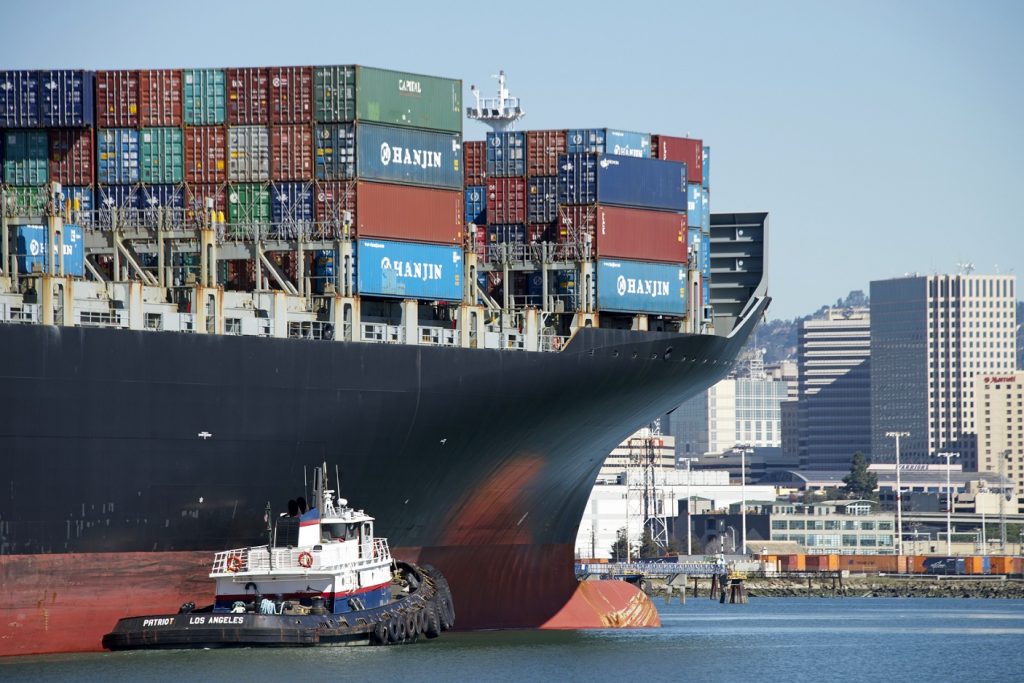Port of Oakland reports no congestion, says could help ease port stress

Port of Oakland officials have called on shipping lines to route more cargo there amid supply chain calamities elsewhere.
The Port said its marine terminals are congestion-free, unlike competing ports crippled by record global trade volumes. It urged restoration of shipping services that have bypassed Oakland since summer.
"There's no congestion at the Oakland seaport, and we're ready for more business," Bryan Brandes, Port of Oakland Maritime Director said.
"We need ocean carriers to reinstate services in order to stabilize the supply chain, and our import and export partners echo this sentiment.”
The Port said containerized cargo volume is up 4.2 percent in 2021 but insisted there’s capacity for more as it hasn't experienced vessel backlogs since August. That’s in stark contrast to Southern California ports where up to 70 ships daily wait at anchor for berth space.
Ports on the west, gulf and east coasts have reported crippling delays in moving cargo and the White House recently called on some facilities to open nights and weekends to move out cargo.
Oakland said shipping lines can help ease the gridlock by steering ships back to Oakland. Several ocean carriers omitted Oakland in recent months, the Port said.
It explained that excessive Southern California delays necessitated immediate return of some ships to Asia without stopping in Oakland.
According to the Port, 54 vessels stopped in Oakland last month which was the lowest vessel call total since 2015. As a result, September import volume declined 13 percent from September 2020 and exports were down 18 percent.
It expects service restoration to begin next month as supply chain congestion continues and it said vessels would find clear sailing to berth without gridlock.
Import cargo would be available for pick-up within days of discharge from ships which hasn’t been the case at some ports where congestion has trapped import containers for weeks.
“We should see vessel calls and cargo volume recover in October and November,” said Mr. Brandes. “We have capacity in Oakland that needs to be put to use to help shore up the supply chain and support our economy.”






































